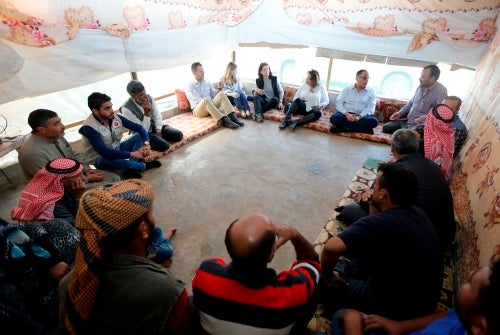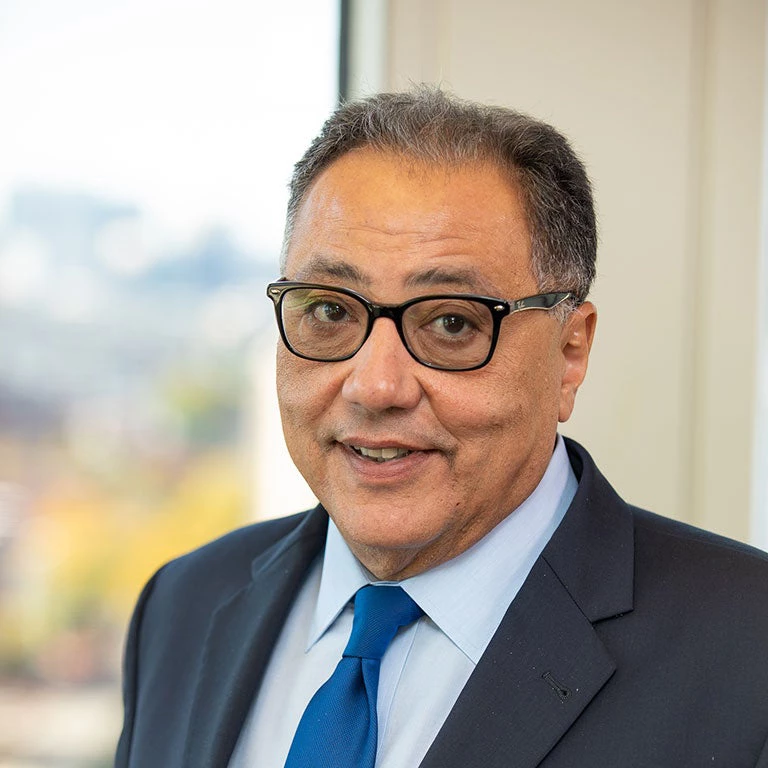 The Syrian refugee crisis is now at the top of the international agenda. Pictures of refugees crossing the Mediterranean and risking their lives and that of their families have shook the world. The picture of a dead boy on the beach in Turkey brought many of us to tears. The Syrian refugee crisis is an awful human tragedy. The kind of tragedy that should not have been allowed to happen in the 21
st century.
The Syrian refugee crisis is now at the top of the international agenda. Pictures of refugees crossing the Mediterranean and risking their lives and that of their families have shook the world. The picture of a dead boy on the beach in Turkey brought many of us to tears. The Syrian refugee crisis is an awful human tragedy. The kind of tragedy that should not have been allowed to happen in the 21
st century.
The vast majority of refugees remain in the countries neighboring Syria: Jordan, Lebanon and Turkey. A few months ago they started crossing to Europe. In relative terms, the number of refugees crossing to Europe is miniscule compared to those in Lebanon and Jordan. Those two countries have each received refugees representing 25-30% of their population. This is equivalent to all of Nigeria moving to Europe, or all of Mexico moving to the USA.
Nevertheless, the movement of Syrian refugees to Europe had huge political repercussion. Europeans worry about how their slow-moving economies could absorb large numbers of refugees. Recent terror attacks in Paris and San Bernardino raise security concerns. Many fear that some radical Islamists who plan to carry out terrorist activities could be hiding among the refugees.
Thus, in addition to outpourings of solidarity and support, the Syrian refugee crisis also gave rise to fear and even xenophobia. Some countries in Europe have built barbed wire fences to keep the refugees out. Extreme right wing parties in Europe are becoming more popular. Although they eventually lost the second round, the fact that the National Front in France received the most votes in the first round of regional elections is an indication of this shift to the right. Even in the USA, some politicians are making statements that are at odds with America’s tradition of openness, respect for diversity, and protection of religious freedom. And, opinion polls indicate that they are attracting significant support.
But who are those Syrian refugees? In order to respond to this question I travelled to Northern Lebanon, near the Syrian border, and met with a group of refugees. Their stories are heartbreaking.
The refugees I met are very poor, according to UN and World Bank data 70 percent of all refugees live below the poverty line. They were poor in Syria before the war broke out, and the war made them poorer and more vulnerable. They are also young. More than 80 percent of the refugees are under the age of 35. There are many children among the refugees, about 20 percent of the refugee population is below the age of four.
In fact, my visit to the refugees allowed me to see the misery in which they live and to understand why some of them, usually the better off who can pay the passage, are willing to risk their lives and the lives of their children by attempting to cross the Mediterranean.
The refugees I met in Lebanon live in a small unofficial camp in the outskirts of Tripoli. They rent a small plot of land and set up camp on it. They are not allowed to work and depend on humanitarian assistance delivered by UNHCR and WFP. The children do not go to school.
The word I heard most often during my visit to the Syrian refugees was “dignity” . A widow and mother of eight told me that she has lost all dignity since she left her country and is forced to rely on charity to feed her children. A group of men described the indignity of not being allowed to work. Since the men who try to work are stopped by the local police, they send their children and their wives to work in the neighboring fields to help feed the family, while they stay at home waiting for humanitarian assistance.
It is worrying that the children in this camp do not go to school—only about two thirds of Syrian children in Lebanon go to school. What kind of opportunities do those young people have? Will they be easy targets for extremist recruiters?
The Syrians I met in Lebanon want three things: to stay as close to Syria as possible; to be allowed the dignity of work to feed their families; and to go back to Syria as soon as possible. This means that in order to support the refugees and to limit the numbers that risk their lives by crossing the sea, the international community needs to: consider ways of helping Lebanon and Jordan create more jobs that also provide opportunities for the Syrian refugees; invest in physical and social infrastructure (e.g. schools) to help the host communities and the Syrians; and, perhaps most important, help find a political solution to the Syrian crisis and start preparing for Syria’s reconstruction.


Join the Conversation